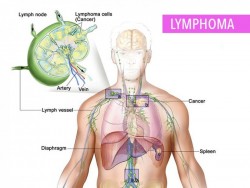
It is not uncommon for people to experience signs of infertility. This may be stressful, as many people show no direct symptoms of infertility until they try to conceive.
Infertility affects both men and women. According to the Office on Women's Health, about a third of issues with infertility comes from women, and another third starts with men. The final third may be due to a combination of both, other factors, or unknown causes.
In this article, learn about signs of infertility in both men and women, as well as when to see a doctor.
In women, signs of infertility may include:
The primary sign of infertility is not getting pregnant after trying for a certain length of time.
A doctor may diagnose infertility if a woman has not become pregnant after 1 year of trying.
If the woman is over the age of 35 years old, she may be infertile if she has not become pregnant after 6 months of trying.

A 2018 study found that obesity might negatively affect reproductive health.
Women with obesity have a lower probability of conceiving and are at a higher risk for issues during pregnancy than those without weight issues.
Pain during sex, or dyspareunia, can be a sign of an underlying health problem that may influence a woman's fertility. Examples of such health issues include infections, endometriosis, and fibroids.
Some women experience a few days of light flow, while others regularly experience heavy periods and painful cramps.
Women who experience very heavy, painful periods may be showing signs of endometriosis, a condition where tissues usually found in the womb are present elsewhere in the body.
Endometriosis is a risk factor for infertility.

If menstrual blood is regularly paler than usual, this may be a cause for concern. Menstrual blood is usually bright red at the beginning of a person's period and may get darker over the following days.
Passing very dark, old blood at the beginning of a period can also be a sign of endometriosis. If a person is experiencing other symptoms, they may wish to speak to a doctor.
The length of a menstrual cycle varies between individuals and over time. However, many people have a regular cycle, meaning that the time between each period is roughly the same.
Having an irregular cycle, including missing periods, can contribute to infertility, as it means a woman may not be regularly ovulating. Ovulation is when the ovary releases an egg.
Irregular ovulation can be due to many issues, including polycystic ovary syndrome (PCOS), obesity, being underweight, and thyroid issues.
Signs of hormonal changes can be nonspecific, and a person may not notice them or know the underlying cause. A doctor can test for some hormonal issues.
Underlying medical conditions
Signs of infertility in men can include the following:
A variety of hormonal imbalances can affect a man's fertility.
Testosterone is a key hormone for male fertility, so problems with the testes that produce this hormone may lead to infertility.
Two hormones signal to the testes to make sperm and testosterone: luteinizing hormone and follicle-stimulating hormone.
The pituitary gland produces these hormones, so any problems with this gland may also influence infertility.

Hormonal changes, psychological factors, or physical issues may make it difficult to get or keep an erection.
If this becomes a regular occurrence, it may interfere with sexual intercourse or be a sign of an underlying issue.
Having difficulty ejaculating or noticing changes in the ejaculate, such as a drop in volume, may also be a sign of an underlying issue related to a man's fertility.
Healthy testicles are an important aspect of male fertility. Small or firm testicles that feel "tight" may be another sign of hormone issues.
On the other hand, swollen, painful, or tender testicles may be a sign of an underlying issue, such as an infection, that can also impact sperm quality and male fertility.
Research from 2015 noted that many studies link obesity in men with infertility.
Obesity can increase the risk for other conditions that may impact a man's fertility such as sperm quality and sexual dysfunction.
Other risk factors may also contribute to infertility in both men and women. These include:

Anyone experiencing signs of infertility and who has been trying to conceive for more than a year (or 6 months if older than 35 years of age) may want to speak to a doctor for a thorough diagnosis.
Sometimes there may be simple ways to make lifestyle adjustments to improve fertility, while other underlying causes may require treatment.
Even after an infertility diagnosis, there may still be ways to conceive that people can discuss with their doctor.
 What Happens When You Quit Smoking – A Timeline
What Happens When You Quit Smoking – A TimelineEvery year more than 7 million people die as a result o...
 Types Of Yoga, Which One Is Best For You?
Types Of Yoga, Which One Is Best For You?There are two types of people in the world - those who ...
 10 Amazing Health Benefits Of Apricot Juice
10 Amazing Health Benefits Of Apricot JuiceOriginally from China, the use of apricots began almost...
 Cheap & Healthy Shopping List for Students
Cheap & Healthy Shopping List for StudentsCheap & Healthy Shopping List for StudentsStaying o...
 This Honey, Lemon And Cinnamon Drink Will Help You Lose Pounds In A Week
This Honey, Lemon And Cinnamon Drink Will Help You Lose Pounds In A WeekThe most effective way to lose weight is to do aerobic ...
 What You Need To Know About Lymphoma
What You Need To Know About LymphomaLymphoma is a cancer of the lymphatic system. It affect...
 This Honey, Lemon And Cinnamon Drink Will Help You Lose Pounds In A Week
This Honey, Lemon And Cinnamon Drink Will Help You Lose Pounds In A WeekThe most effective way to lose weight is to do aerobic ...
 Colon Cancer: Could Exercise Halt Tumor Growth?
Colon Cancer: Could Exercise Halt Tumor Growth?New research published in the Journal of Physiology sug...